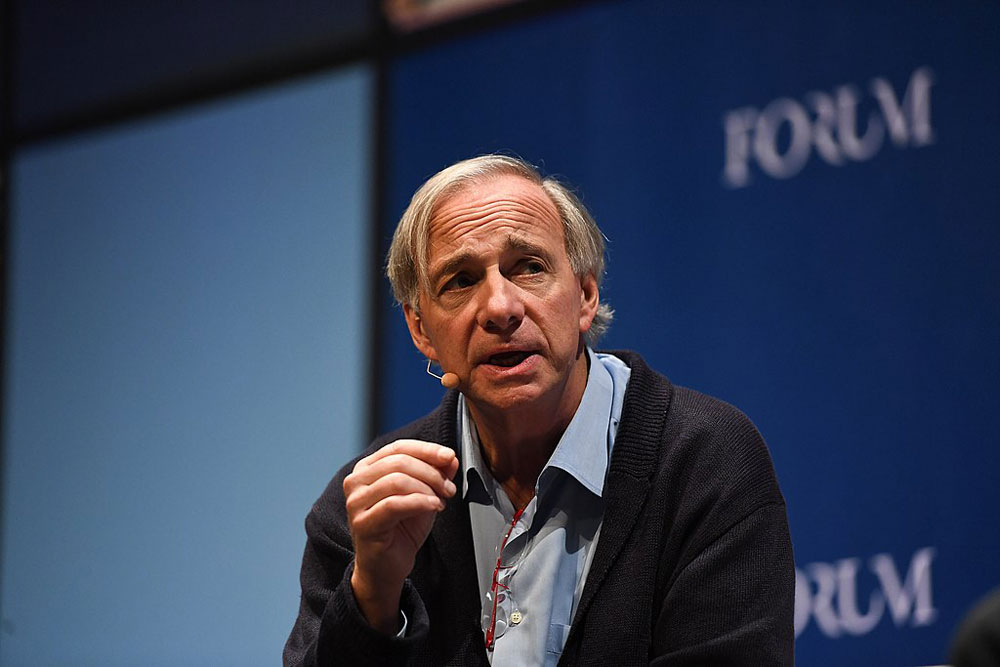
September 24, 2020; Hartford Courant
NPQ would love to stop writing about failed partnerships between public schools and billionaires, but they keep getting started and running aground as fast as their benefactors pillage the economy.
One such failure is the Partnership for Connecticut, funded for $100 million by hedge fund billionaires Ray and Barbara Dalio to be matched by the state. The partnership closed up shop three months ago after spending less than a year in existence, but still it had time to become embroiled in a controversy around the leadership of one Mary Ann Schmitt-Carey, whose tenure lasted just two months. She claims her reputation was dragged through the mud after Ray Dalio realized she did not wish to be dictated to.
Her lawyer says she refused to simply be used as a rubber stamp when she was the one with the education experience. But, wait—isn’t that the deal with all of these education-obsessed billionaires? That’s the gig, right?
In this case, Republican lawmakers in the state can say they told us so, having objected strenuously to the program and the 2019 legislation that created the state-Dalio partnership which, weirdly, was exempted from state freedom of information and ethics laws.
The story of the firing certainly suggests that the group did not feel that it was subject to any such guidelines.
“Mr. Dalio explained that he would not be regularly involved in The Partnership’s work, as his primary philanthropic interest is ocean exploration,” the suit says. “He also stated that his wife had been interested in public education in Connecticut for years, and that The Partnership was ‘her program.’”
He “instruct[ed] Ms. Schmitt-Carey that her job was not to draw on the experience and knowledge she had accumulated during her long career, but to take direction from Ms. [Barbara] Dalio regarding which programs should be implemented,” the suit says. “Mr. Dalio informed Ms. Schmitt-Carey, ‘If my wife wants to distribute 10,000 coats, your job is to figure out how to do that.’”
Sign up for our free newsletters
Subscribe to NPQ's newsletters to have our top stories delivered directly to your inbox.
By signing up, you agree to our privacy policy and terms of use, and to receive messages from NPQ and our partners.
Schmitt-Carey expressed her concerns to Partnership board chair Erik Clemons, and a few days later, she claims, the organization tried to force her to resign during a conference call.
So it goes. We would like to take readers back to what Anand Giridharadas, the author of Winners Take All said about the grant and Ray Dalio’s declarations about supporting a more equitable economy and school system:
What Ray Dalio needs to understand, which members of his class so often struggle to understand, is that the reason his class has too much money is because it also has too much power. Power in Washington. Power in an under-taxed, under-regulated economy. Power exerted through big philanthropy. Power lubricated by a cultural narrative that deifies wealth and marginalizes democratic solutions. Power to have his musings on inequality be aired on 60 Minutes just because this fox suddenly has thoughts on hen protection, even though others who have been doing the work of narrowing the divides for decades would never get that kind of platform.
And, about the grant:
It is fine to donate money to Connecticut. But Dalio’s personal preferences should have zero influence on how the money is spent. This is the problem with the public-private-partnership model he venerates: It puts some rich guy and the State of Connecticut on an equal footing to negotiate a plan to enhance the general welfare. Why? You wouldn’t ask an arsonist to lead the firefighting brigade, and you shouldn’t ask those who have benefited most from a rigged system, and who have the most to lose from genuine reform, to lead the reformation of the system.
Giridharadas has hit the nail on the head. Placing a rich hedge fund manager in a co-equal position with public governance is anti-democratic and, where the public schools are concerned, doomed to be counter-productive in terms of lived-out notions of equity.
Even as the Dalios have, in a huff, withdrawn funding from the low-income public school children to whom they claimed to be so dedicated, learning has become an even more dicey proposition for low-income students as they struggle with such stuff as connectivity and childcare issues. How about you just give the money to schools to get students and families what they need to survive the pandemic and keep their children safe and learning? And, while you are at it, just pay the woman. You will spend that much in legal fees anyway and you won’t miss it. Call it your exit toll.—Ruth McCambridge












